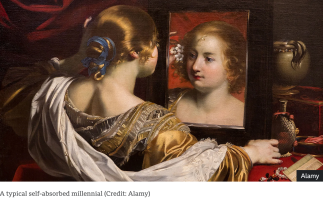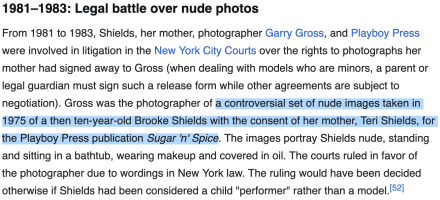R. A.
But...the future refused to change.
- Aug 8, 2022
- 1,318
...and it's been happening for thousands of years. It's been dubbed the "Kids These Days Effect", and studied as a psychological phenomenon:

 www.discovermagazine.com
www.discovermagazine.com
For those of you interested enough in this to read the post but not open the link,
1) shame on you, don't believe everything you read on a suicide website; media literacy has been a crucial skill for decades already and is only becoming more so,
2) the article sums up the bias uncovered in the studies thus:

Why We’ve Been Hating on ‘Kids These Days’ for Thousands of Years
There are underlying psychological explanations for why adults so consistently think that kids are deficient.
For those of you interested enough in this to read the post but not open the link,
1) shame on you, don't believe everything you read on a suicide website; media literacy has been a crucial skill for decades already and is only becoming more so,
2) the article sums up the bias uncovered in the studies thus:
"First, we tend to judge others more harshly in areas where we excel. An ardent reader, then, will be more likely to deride someone else's reading habits. Second, our memories of what we were like as children can't always be trusted ... we're likely to assume that our childhood selves had the same abilities that we do today, though in reality we may have spent a lifetime honing those skills. The kids of today, in comparison to our falsely praiseful memories, have a hard time measuring up."
People continued to hold the false belief after being informed of the effect, assuming it must have been true only in eras before their own.
Want a shorter funnier read? The above piece linked to a good one from the usually-garbage BBC of a list of examples of then-current (mid-2010s) comments disparaging millenials, compared them to nearly-identical sentiments expressed decades, centuries, or millennia before. A personal favorite was "The beardless youth… does not foresee what is useful, squandering his money." - Horace, 1st Century BC

 www.bbc.com
www.bbc.com
Want a shorter funnier read? The above piece linked to a good one from the usually-garbage BBC of a list of examples of then-current (mid-2010s) comments disparaging millenials, compared them to nearly-identical sentiments expressed decades, centuries, or millennia before. A personal favorite was "The beardless youth… does not foresee what is useful, squandering his money." - Horace, 1st Century BC

People have always whinged about young adults. Here's proof
Older people love to gripe about the entitled, lazy millennial generation. But it's nothing new – by delving into the archives, we found plenty of parallels stretching back 2,000 years
Of course, at least in certain areas, the obvious counter-argument is that age begets experience, and youth are inherently less knowledgeable than their elders. This isn't a blanket statement but is sort of self-evident; someone who's lived 10 years has only had 1/5th the potential for life lessons as a 50-year-old. Age is not the only vector for experience - especially not in a world as diverse and connected as today's is - and this retort is a non-starter for old farts ragging on young people for being distracted/corrupted by [modern thing x], considering in the late 1800's, novels caused a moral panic due to their escapist nature and "were blamed for basically just about everything, from increasing promiscuity in young women to encouraging suicide and self-harm in young men."



